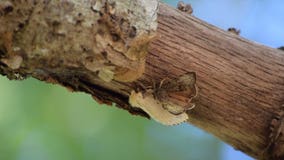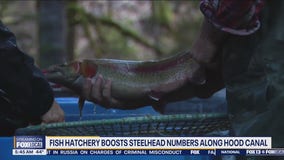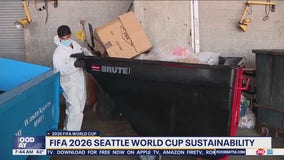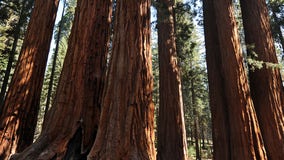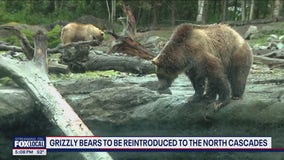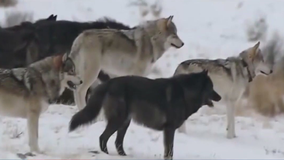How AI can help (and hurt) climate change
Artificial intelligence significantly impacts the climate crisis by consuming large amounts of energy and water for its data centers, leading to increased greenhouse gas emissions, while also offering tools for climate management, such as improving climate models, optimizing energy use, and enhancing renewable energy efficiency.
PNW: Preserving our Climate
Hosted by FOX 13 Seattle's Matthew Smith and Meteorologist Abby Acone.
Portion of Cayuse, Chinook Passes near Mount Rainier reopens for the season
A portion of two state highways that provide access to Mount Rainier National Park will reopen for the season on May 24.
Louisiana crawfish harvest down as much as 90% in shortage that could cripple industry for years
This year has been one of the worst Louisiana crawfish harvests on record.
Sites like Hanford with radioactive material more vulnerable as climate change increases wildfire risks
As Texas wildfires burned toward the nation’s primary nuclear weapons facility, workers hurried to ensure nothing flammable was around buildings and storage areas.
Heatwave in Mexico causes howler monkeys to drop dead from trees
Mexico is facing one of its harshest droughts, with temperatures hitting 113 degrees Fahrenheit (45 degrees Celsius) on Monday, causing severe water shortages and leading to the deaths of at least 83 howler monkeys in Tabasco due to extreme heat and dehydration.
Fight over natural gas could be decided by new WA voter initiative
Let’s Go Washington and the Building Industry Association of Washington are behind Initiative 2066, which aims to push back on portions of a controversial decarbonization bill that narrowly passed the legislature this year.
Olympic marmot conservation plan: Could reintroducing wolves save the species?
Conservationists are advocating for the Olympic marmot, a beloved species found only in Washington state, to be added to the endangered species list. The Center for Biological Diversity attributes the subspecies’ decline to climate change and predation by coyotes.
2023 marks hottest summer in over 2,000 years in Northern Hemisphere, study finds
A recent study published in the journal Nature reveals alarming findings about the summer of 2023, asserting it as the hottest in the Northern Hemisphere in over 2,000 years.
USDA updates its 2024 Plant Hardiness Map: Find out what planting zone you live in
The updated map offers gardeners, based on where they live, guidance on the best practices to help their plants grow and survive.
Covington residents want answers about controversial proposal to build battery storage facility
Residents thought all the pushback stalled the project last year, but they recently came across an application to address wetlands on the proposed site that left many wondering what was going on.
World's largest plant to extract CO2 and turn it to stone opens in Iceland
The world's largest carbon capture facility, Mammoth, has begun operations in Iceland, using direct air capture technology to extract CO2 from the atmosphere and convert it into stone.
Inslee issues emergency proclamation over spongy moth infestation
The infestation is in the Steamboat Island Road and US Highway 101, Thurston County area (roughly 1,383 acres), and also near the town of Concrete, Skagit County area (roughly 920 acres).
Fish hatchery boosts steelhead numbers along Hood Canal
Steelhead and salmon along the Hood Canal are facing major problems
FIFA 2026 Seattle World Cup sustainability
The countdown to World Cup 2026 continues with a little more than two years away from kickoff in Seattle.
Top US national parks to visit with kids revealed
With 63 U.S. national parks spread across 30 states and two overseas territories, it can be tough to decide which one to visit.
Grizzly bears returning to North Cascades
Under the plan, grizzly bears in the North Cascades will be designated as a nonessential experimental population under the Endangered Species Act.
Fecal pollution threatens 15 WA shellfish harvest areas
More than a dozen of Washington state's commercial shellfish growing areas are threatened because of increased fecal bacterial levels in the water.
Washington's gray wolf population recovering, warning issued for hikers
The largest concentration of the species is mostly out east of the mountains, but experts say they're moving west-- and fast. But clusters have been spotted in the Tenaway forest area, around Cle Elum and Suncadia.
New report ranks the most polluted places in the U.S.
The American Lung Association says 131.2 million people – that’s 39% of Americans – live in communities with failing grades for levels of pollution. Here's a map of the best and worst.














